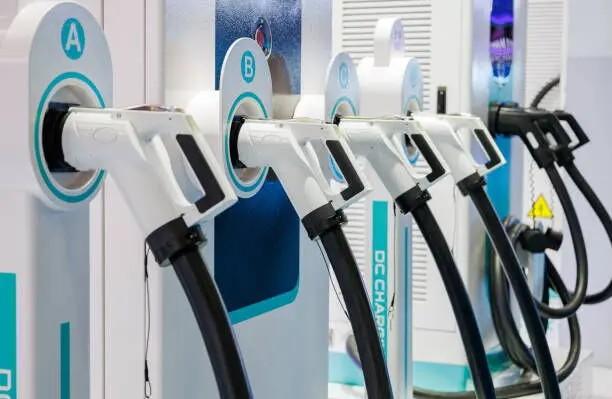Notifications

8 minutes, 44 seconds
-3 Views 0 Comments 0 Likes 0 Reviews

Why an EV Charger Load Evaluation Is Critical Before Installation
Topper Company, a leading EV charger manufacturer in China, delivers dependable electric vehicle charging stations and comprehensive turnkey solutions.
As electric vehicles (EVs) become increasingly popular, more homeowners, businesses, and property managers are seeking to install EV chargers on-site. While the idea of installing a charger may seem simple, the reality involves a technical and often overlooked process: the EV charger load evaluation. This crucial assessment ensures that your existing electrical system can safely support the additional power demand—without risking reliability, safety, or code violations.
An EV charger load evaluation is a detailed analysis of your building’s electrical infrastructure to determine whether it can accommodate the energy demands of an EV charging station. This assessment is typically conducted by a licensed electrician or certified electrical engineer who specializes in EV charging systems.
During the evaluation, the professional will:
Analyze your current electrical load and usage patterns
Assess the capacity of your electrical panel and service
Identify peak energy consumption times
Project future load increases (e.g., additional EVs, appliances, or solar systems)
The outcome helps determine the type of EV charger you can install and whether upgrades or smart energy management solutions are necessary.
Installing an EV charger without first assessing your electrical capacity can lead to serious, and often costly, issues:
Your main service panel is designed to handle a specific amount of power. Adding an EV charger without confirming available capacity could overload the panel—causing breakers to trip or increasing fire risk.
An overtaxed system can lead to erratic power supply, damaged charging equipment, or unreliable charging performance—all of which may affect your daily routine or even damage your EV.
If your system can’t support the charger mid-installation, you could face unplanned service upgrades, costly delays, or the need to reapply for permits.
Most local codes require proof that your system can handle additional load. Skipping the evaluation can delay approvals, void insurance coverage, or trigger regulatory penalties.
Electrical load refers to the total power consumed by a building at any given time, measured in kilowatts (kW) or amperes (amps). Installing an EV charger—especially a Level 2 unit—adds a significant new load, comparable to running multiple large appliances simultaneously.
For example:
A Level 2 charger drawing 40 amps on a home with a 100-amp service uses 40% of the total capacity—leaving less headroom for other systems like HVAC, ovens, or dryers. Without proper planning, this can lead to overloads or power imbalances.
A comprehensive EV charger load evaluation typically involves:
Inspecting your main electrical panel to determine available amperage, breaker configurations, and current utilization.
Using National Electrical Code (NEC) standards, the electrician calculates total existing and anticipated loads, factoring in all appliances, lighting, and HVAC systems.
Evaluating when your property consumes the most electricity—essential for identifying if charging will coincide with other high-demand periods.
Calculating the “spare” load capacity your system can safely accommodate for EV charging.
Taking into account possible expansions, such as multiple chargers, solar panels, or additional high-power equipment, ensuring your system remains sufficient for years to come.
If your system lacks capacity for a Level 2 charger, that doesn’t always mean a full panel upgrade is necessary. Many modern EV installations benefit from smart load management solutions, which optimize power usage in real time.
Examples include:
Dynamic load balancing between multiple EV chargers (ideal for fleets or multi-EV households)
Time-of-use charging, where EVs charge during off-peak hours to reduce grid demand
Current-limiting devices that reduce charging speed during peak home usage
These solutions help you stay within your system’s capacity—saving money on upgrades while maximizing efficiency.
Load evaluations should always be conducted by licensed electricians or certified engineers with expertise in EV infrastructure and electrical code compliance. Their expertise ensures:
Accurate calculations and safe system design
Code-compliant installations
Reliable permit approvals
Long-term electrical safety
In many jurisdictions, a signed load evaluation is a prerequisite for obtaining installation permits.
Older homes (especially those built before 1980) may have:
60–100 amp service panels
Outdated wiring
Limited circuit breaker slots
These homes are often operating near capacity and require panel upgrades or rewiring before safely supporting an EV charger. Skipping the evaluation in such cases increases the risk of equipment failure, fire, or costly damage to your EV.
For apartment buildings, condos, office parks, or fleet operators, load evaluations are even more essential. These sites typically require:
Utility coordination and load-sharing systems
Demand response integration
Higher-capacity service upgrades
Trenching or rewiring
Compliance with local zoning and fire codes
Failure to properly assess load needs can result in significant budget overruns and legal delays.
Initial Consultation
Engage a licensed electrician to assess your current electrical service and charger goals.
Conduct Load Evaluation
Perform a full analysis of your system, usage, and capacity.
Review Results and Plan Accordingly
Determine if your system can support a charger or if upgrades/smart load management are needed.
Obtain Necessary Permits
Submit documentation to local authorities for electrical or building permits.
Schedule Installation
Install your EV charger with confidence, knowing your system is safe and ready.
An EV charger load evaluation is not just a technical step—it’s a foundational part of safe, efficient, and cost-effective EV charger installation. By properly evaluating your electrical system:
You avoid expensive surprises and delays
You ensure compliance with building and electrical codes
You protect your home, charger, and vehicle
You future-proof your property for expanded energy needs
Whether you’re a homeowner, property manager, or business owner, investing in a load evaluation is one of the smartest moves you can make on your road to electrification.Know more about Google SEO Directory
China EV Chargers EV Charger Manufacturer EV Charging Solutions

